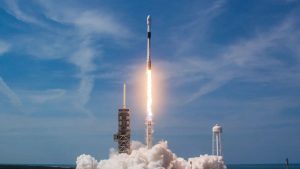Musk says SpaceX cannot fund Starlink in Ukraine ‘indefinitely’ after report he asked Pentagon to pay
Elon Musk said that his company SpaceX cannot fund the Starlink service in Ukraine “indefinitely.”
Michael Gonzalez | Getty Images News | Getty Images
Elon Musk said Friday that SpaceX cannot continue fund Starlink terminals in Ukraine “indefinitely,” after a report suggested his space exploration company had asked the Pentagon to cover the costs.
SpaceX’s donated Starlink internet terminals have been crucial in keeping Ukraine’s military online during the war against Russia, even as communication infrastructure gets destroyed.
Last week, Musk tweeted that the operation has cost SpaceX $80 million so far, and will exceed $100 million by the end of the year.
On Friday, the billionaire, who is also CEO of Tesla, said SpaceX cannot fund the existing system “indefinitely” and send several thousand more terminals that have high data usage.
It follows a CNN report that SpaceX told the U.S. government it could no longer fund Starlink services in Ukraine. The report cited documents obtained from the Pentagon and said SpaceX is asking the U.S. government pay for the terminals instead.
The letter from SpaceX to the Pentagon claimed that Ukraine’s use of Starlink could cost close to $400 million over the next 12 months, according to the CNN report.
In a separate tweet Friday, Musk appeared to confirm that SpaceX was exiting Ukraine in some form, replying to a Twitter post that referenced the Ukrainian ambassador telling Musk earlier this month to to “f— off.”
“We’re just following his recommendation,” Musk replied.
The SpaceX founder drew the ire of Ukrainian politicians when he posted a Twitter poll gauging support for what he claimed was a likely outcome of the Russia-Ukraine war.
A spokesperson for SpaceX was not immediately available for comment when contacted by CNBC.





